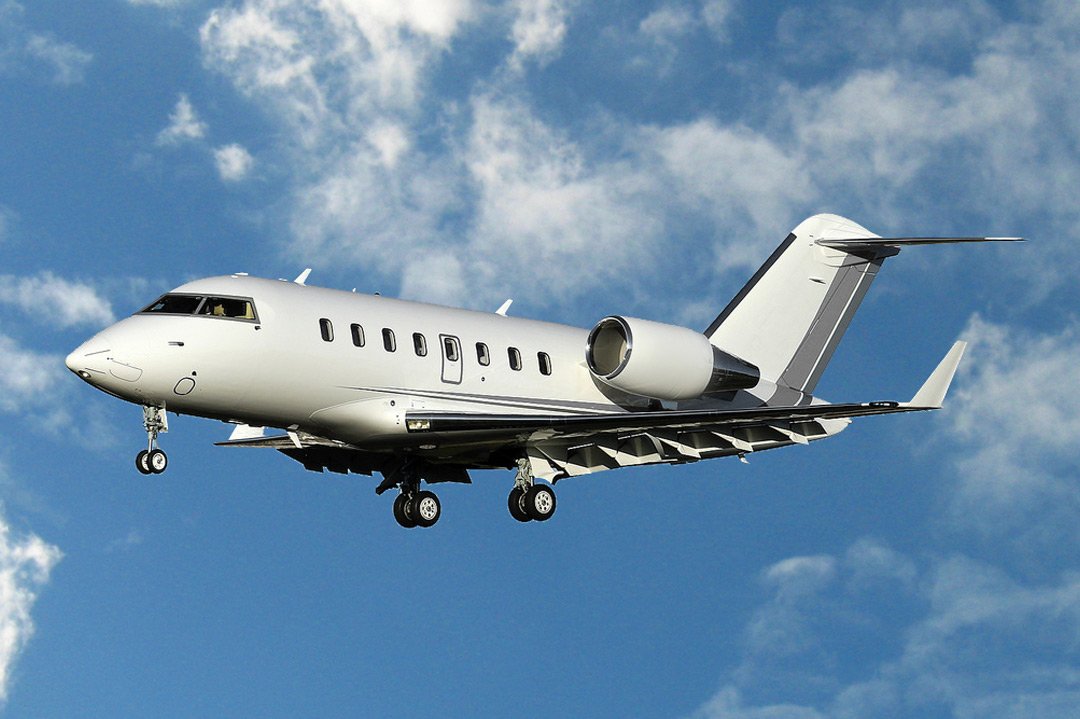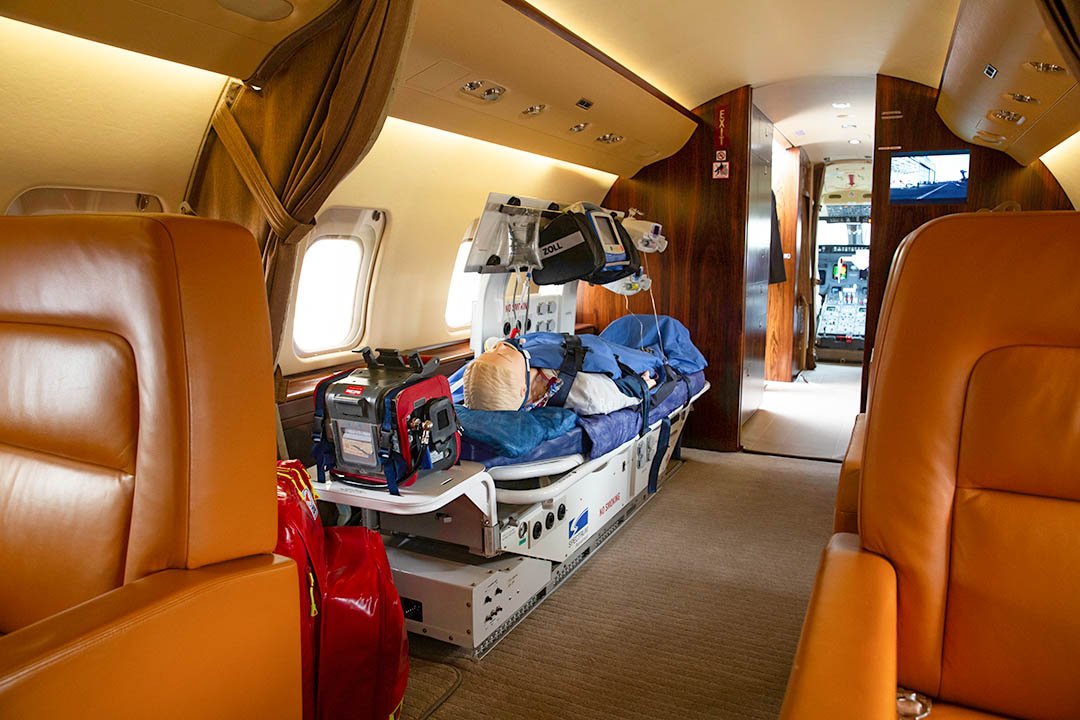Denied at the gate: When medical restrictions prevent you from flying
Reading Time: 4 minutes
Table of contents
- Medical restrictions for flying commercially
- Situations which demand flying despite a medical condition
- Our air ambulances: A solution to your problem
- Why should you use Medical Repatriation UK for medical repatriation?
- Do you have any additional questions?
- Contact us right away for medical repatriation!
Travelling is always enjoyable and almost never causes health problems. However, keep in mind that there is no such thing as zero risk, and total in-flight health safety can never be guaranteed. While air travel poses few serious problems for healthy passengers, flying long distances at 25,000 feet or higher can, in some cases, cause health issues for passengers with pre-existing medical conditions. As a result, if a traveller is injured or becomes ill while on vacation or on a business trip, transferring him home can become very complicated very quickly. On the other hand, this does not imply that everyone suffering from a chronic illness or a severe injury should believe they are grounded. Simply put, extra precautions must be taken. In this article, we discuss the medical restrictions that may prevent you from flying and how Medical Repatriation UK can help you with this.
Medical restrictions for flying commercially
Gate personnel, flight attendants, and pilots have the authority to refuse passengers boarding on all domestic and international commercial flights if they believe that the latter may endanger themselves or any other passenger on-board the aircraft.
To continue, medical experts from various fields have come to the conclusion that certain medical conditions necessitate special precautions both before and during a flight. This is due to the fact that the majority of health problems occur as a result of decreased oxygen pressure in the cabin when the aircraft flies at high altitudes. Most healthy passengers are unaffected by that pressure change, but passengers with pre-existing medical conditions may be.

Passengers who have recently undergone surgery or medical procedures that allowed air to enter closed body cavities such as the abdomen, as well as those suffering from sinus or ear infections, fall into this category. Indeed, if a passenger has a sinus or ear infection, or even a common cold, he is particularly susceptible to pressure changes. The infection causes blockages as the plane descends, preventing the air pressure inside the sinuses or ears from equalizing with the pressure in the cabin. The resulting pain can be excruciating. Infants and children are especially vulnerable.
Likewise, anyone who has recently had abdominal surgery or colostomy patients will most likely be extremely uncomfortable on an airplane. While not life-threatening in and of itself, the increase in intestinal gas volume caused by decreased cabin pressure may cause air to become trapped in collapsible body cavities or weaken sutured areas.
Passengers with cardiac or pulmonary issues are also at the top of the list of those who are at risk when flying. A drop in cabin oxygen levels, for example, which in turn causes a drop in the blood oxygen levels (hypoxemia), may affect passengers with chronic obstructive pulmonary disease or who have recently had a heart attack or heart surgery or who suffer from uncontrolled congestive heart failure or arrhythmias (abnormal heart rhythm). As a result, doctors recommend avoiding flying for three to eight weeks after a heart attack or heart surgery, and some lung patients may be advised to avoid flying without additional oxygen.
Good to know: People who have pacemakers or implantable cardiac devices should have no trouble flying. And metal detectors used by airport security have no effect on such devices.
Be cautious: cabin crews are not trained to perform cardiopulmonary resuscitation or to use electric devices to restart a stopped heart. These devices are also not currently used on airplanes.
Elderly patients who are prone to blood clots are also at risk, particularly on long flights. Wearing a support hose, walking around the cabin, and performing isometric calf exercises can all help reduce the risk. Consider requesting bulkhead seats, which provide more legroom, and avoiding inside or middle seats, as well as smoking areas. In order to avoid dehydration, you should drink non-alcoholic beverages on a regular basis. Patients who have untreated angina or chest pain at rest should avoid flying as well.

Naturally, being infected with the Covid-19 will prevent you from flying commercially. But don't forget about other contagious diseases such as fever, diarrhea, and chicken pox. All are highly contagious and, while not necessarily made worse by flying, are serious health concerns for commercial airlines. As a result, they may deny you boarding in order to reduce the risk of infecting other passengers and flight crew.
Situations which demand flying despite a medical condition
Despite the health concerns raised above, some passengers are compelled to fly. A medical complication that cannot be treated in a nearby health facility frequently forces them to look for a viable and safe alternative to commercial flights. In general, flying despite a medical condition is required in the following circumstances:
- Unavailability of sufficient medical care in their location;
- Desire to take advantage of better care abroad;
- Desire to move closer to family or into a hospice;
- Desire to participate in clinical trials in a different region.
There are a variety of reasons that necessitate flying despite a medical condition, and they vary according to each patient's needs and circumstances.
Our air ambulances: A solution to your problem
It can be difficult to transport a patient from one location to another. We, on the other hand, are very knowledgeable about the process and will assist you at every step of the way to make your repatriation/evacuation as easy as possible.
Our planes are essentially flying intensive care units. We have enough oxygen on board to cover any potential delays, as well as a full complement of medicines and medical equipment. Furthermore, life support equipment can be transported to and from hospitals on our ground transports. We have diversion plans and procedures in place to accommodate all of our patients in the event of an emergency or unplanned lengthy delays.
Why should you use Medical Repatriation UK for medical repatriation?
International medical repatriation and evacuation require international expertise, long-distance medical capability, and long-distance assets, which commercial airlines may not always have. We have transported countless patients all over the world since our beginning. You can trust that we will evacuate or repatriate your patient quickly and safely to your destination country.
As per your request, our all-inclusive medical flight services can include providing interpreters, assisting you in applying for visas, obtaining flight permits, and managing specific Covid concerns from both the country of departure and the country of arrival. Indeed, we are experts at expediting procedures to reduce both upfront time and costs.

Also, certain medical conditions require patients to be transported at sea level pressure, which may increase the amount of fuel and the number of fuel stops required. Because we have a fleet of private jets and helicopters, no situation is too difficult for us to handle. To ensure that medical repatriation is completed on time, we also have multiple teams and follow the strictest Covid-19 disinfection protocols.
Based on our years of experience, the number of patients we have safely repatriated, our range of equipment and aircraft, and the breadth of our all-inclusive services, Medical Repatriation UK is uniquely qualified to manage your medical repatriation and evacuation needs.
Do you have any additional questions?
Many of the most frequently asked questions about long-distance patient transfer to the UK are addressed in our FAQ.
Contact us right away for medical repatriation!
Please contact our 24-hour service at any time if you require additional information or a free non-binding quote. Our friendly and knowledgeable staff can be reached at:
- Telephone: +44 (0) 20 3608 0483
- Email: info@medical-repatriation.uk
- Our contact form